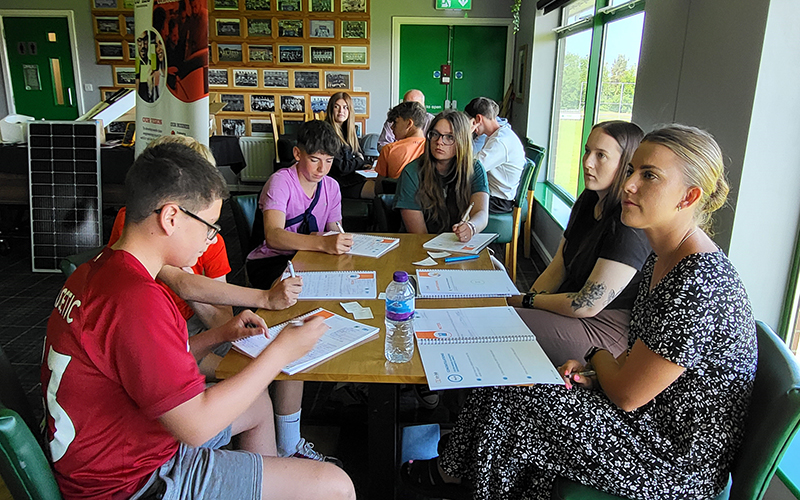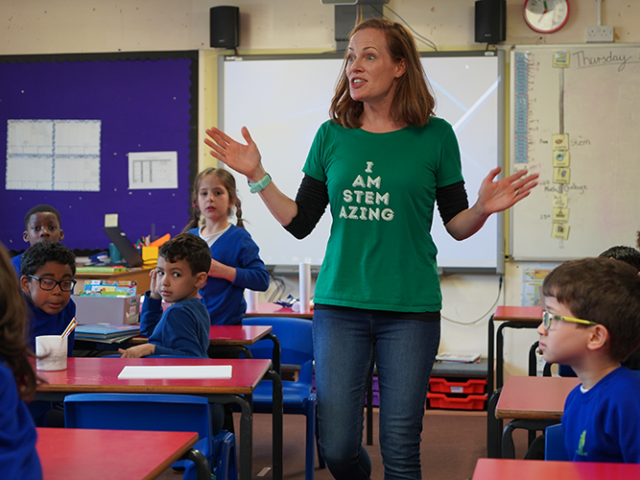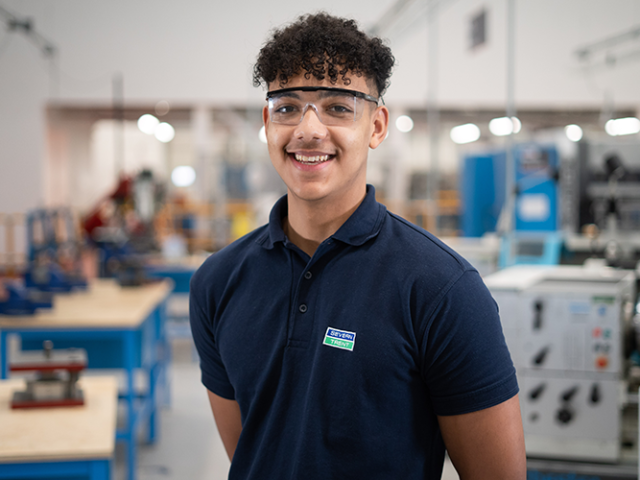Young footballers are kicking their half term holiday into touch to lead a green energy project which is building their own employability skills while future-proofing their community club.
The 15 teenagers are spending their school holidays working on engineering solutions to tackle their club’s sustainability challenges thanks to an innovative collaboration.
The youngsters, aged 12-14, are building wind turbines and solar panels, and looking at irrigation options as part of investigating what solutions will work best for their club.
The ‘Greener than Green’ project at Cleator Moor Celtic Football Club in Cumbria has been made possible by a range of diverse businesses, from one-person start-ups to major multinationals, collaborating with the community to help give the young people skills which will help them find future employment.
iSH, the Industrial Solutions Hub, Co-Lab Engineering, and Cleator Moor Celtic Football Club have teamed up to run the project over three days this half term. The young footballers’ findings will be presented to the club at the end of the week. Businesses and other organisations in the area will then be sought to carry out the work.
The inaugural Co-Lab Engineering Junior Academy, has already seen a range of organisations collaborate including iSH, Jacobs, Westinghouse, React, Technology Consortia Ltd, Radiance Renewable Energy Solutions and Cleator Moor Celtic Football Club.
Graeme Close, Chair of Cleator Moor Celtic, which has 350 junior players aged U6 to U16, as well as 60 senior players, said the club’s energy bills exceed £10,000 a year.
Faced with these rising costs the club’s committee set themselves the challenge of halving their energy bills and reducing their carbon footprint in the process.
Graeme said: “If we don’t look at cost saving technologies then the club would find it difficult to operate during these uncertain times when energy prices are so high.”
When the committee looked at renewable energy options, such as solar power, Graeme said figures quoted to them were way above what the club could afford.
That’s when they contacted iSH and Clyne Albertelli’s Co-Lab Engineering Academy and came up with the idea of involving young footballers in the ‘Greener than Green’ project.
Graeme said: “This project is 100 per cent focused on the kids, helping with their education, preparing them for employment and giving them experience of different energy technologies.
“The kids will then come back with some passionate, creative ideas and we will look to point them towards businesses, or funding opportunities, to bring the solutions to fruition.
“Then, when the kids are a bit older, and they are in job roles which this project has helped them achieve, hopefully they will come in here and think they did their bit for their football club, for their community and for the environment – and that’s got to be a good result for everyone.”
Clyne Albertelli, Managing Director of Co-Lab Engineering, said: “This is an initiative which is mutually beneficial for the football club and for the players. The club will get an engineering solution to their sustainability challenges, the young players get an opportunity to learn and develop skills in engineering and sustainability.
“They will learn technical skills, including a systematic approach to problem solving and hands- on practical experience of renewable energy systems, as well as softer skills such as taking responsibility for problems, working collaboratively as a team, and presentation skills.”
Hannah Pears, iSH Education Liaison Officer, said: “iSH is all about collaboration and enhancing the capability of those around us – in education, business or community.
“This project brings a real-world problem that a local community facility is facing to the young people within that community to help them upskill and develop their technical skills within the engineering and green energy sectors as well as soft skills in problem solving and creative thinking.
“It’s a very enterprising project – with elements that have curriculum links – and it gives young people experiences that they can add to their portfolios, CVs and talk about at future interviews for apprenticeships or other employment opportunities.
“They are doing something different in their school holidays that is really going to make a difference to their community as well as getting exposure to industry – and that sets them apart when it comes to applying for jobs further down the line.”




